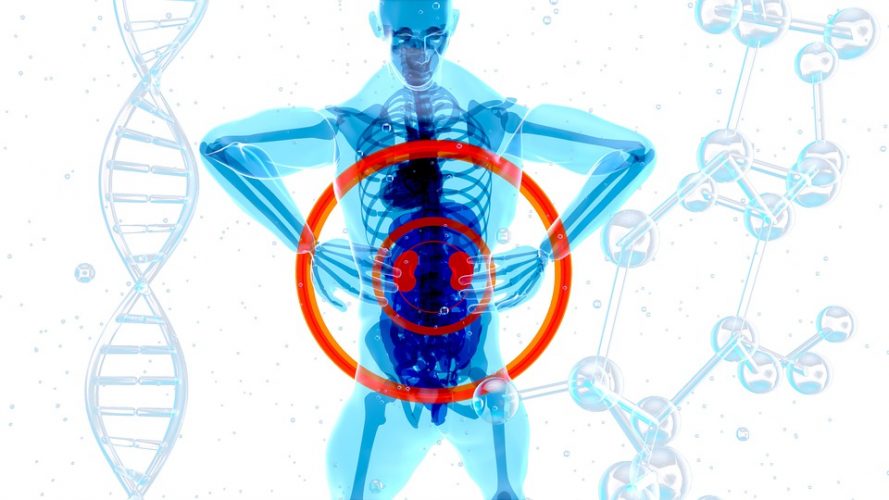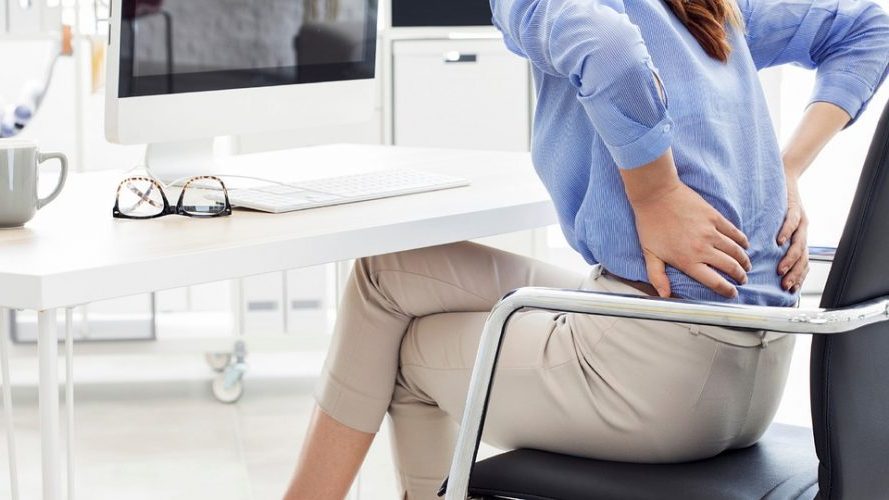Many people wonder Why do your kidneys hurt? The kidneys are not an organ that normally hurts. Our kidneys do not hurt when they are carried by air as grandmothers warn and thus weighs on popular opinion. Moreover, it is impossible for them to get ‘sick’ if their back is not covered. The main risk factors for developing kidney disease are diabetes, high blood pressure, heart disease and family history.
Contrary to popular belief, the kidneys are not located in the lower back. They are located on each side of the spine, but are actually located in the middle of the back and just below the ribcage, that is, the ribs.
Every day they process about 190 liters of blood, to remove about 2 liters of waste and excess water from the body through urine. And despite popular belief, the kidneys do not get cold. It is also not true that because of the cold colic or kidney infections.


Why do your kidneys hurt? The cold thing is a myth
What causes urinary infections is the presence of germs, as well as certain habits, but nothing to do with or related to the common cold. It’s true that if you don’t cover your back you can get lower back pain, but it’s not really kidney pain, but rather a contraction of the muscles near the kidneys.
During the winter period it is common to catch a cold or flu. And it is very common for these conditions to be accompanied by muscle pain in the arms, legs and also in the lumbar region. Lower back pain usually does not correspond kidney pain by carrying them into the air, but with muscle pain. Despite this, it is believed that the cold is the cause of a kidney problem. But this is a false statement or belief.
It is also true that during the coldest periods, throat infections occur, which are caused by special germs. And they may be linked to kidney disease. This is a special type of streptococcus that in turn causes ‘acute glomerulonephritis’ or inflammation of the small filters of the kidneys (glomeruli).
This type of streptococcus causes local epidemics. And what initially seemed like an outbreak of a cold or sore throat turns over the days into hematuria (blood in the urine) or kidney failure, from which a small proportion die and the rest recover.
This also happened many years ago in the most developed countries. And the disturbing thing is that by the time the kidney lesion appeared, the streptococci were gone. In this case, antibiotics are not viable and the only way to stop the epidemic is to prevent the transmission of pharyngitis, which is the primary condition.
Today, these strains of streptococci still occur in nature. But in most countries they are much less dangerous, because the general immunity of the population has improved. However, due to these specific problems of respiratory infections accompanied by kidney problems, the myth of cooling still persists.
And this happens because the concept is in the subconscious of the population, fundamentally in that of our elders. They keep advising us to protect our kidneys well to prevent them from hurting.

And when and why do your kidneys hurt?
The most characteristic pains are those caused by renal colic, which can be as strong as those of childbirth. And they are radically different from any discomfort that can be felt in the lower back. If you have colic, the pain is acute and accompanied by general discomfort and sometimes nausea and vomiting.
The pain of renal colic is really very severe and anyone who has ever suffered from it never forgets the situation, because it is completely impossible to compare it with any other kind of pain. Renal colic is due to a process that initially does not hurt. Because it can be caused by calcification, clots, infectious processes, etc.
In the case of lithiasis, that is, the formation of stones, these are due to the deposition of salts. These are mainly calcium, but also uric acid or other substances. These basically accumulate in the inner part of the kidneys. There they condense and form a stone, which, as long as it is attached to the kidney, usually does not hurt. The problem is when it comes off because until it can come out it can hurt a lot.
In the event that natural expansion is not feasible, there are several methods to solve this. And in case there are infectious processes, urine cultures with antibiograms are performed to identify which bacteria are causing the infection. And in this way prescribe the most suitable antibiotics to combat them.
How can you avoid these problems?
Nutrition is undoubtedly one of the basic principles for preventing kidney problems. Drinking plenty of water is one of the best things we can do for our urinary system in general and our kidneys in particular. One of the worst enemies of kidney health is salt. Sausages, products in brine and processed foods are therefore very harmful. As well as alcohol, red meat and very sugary drinks. 
Among the foods associated with the kidneys, blueberries, strawberries, pineapple and potatoes stand out. In addition to these three in particular, it is essential to consume plenty of fruits and vegetables, as they contain antioxidants and plenty of water, as well as minerals and vitamins necessary for kidney health. And to complete the protection, we must ensure that this is the case biological food and as much as possible: fresh and seasonal.

